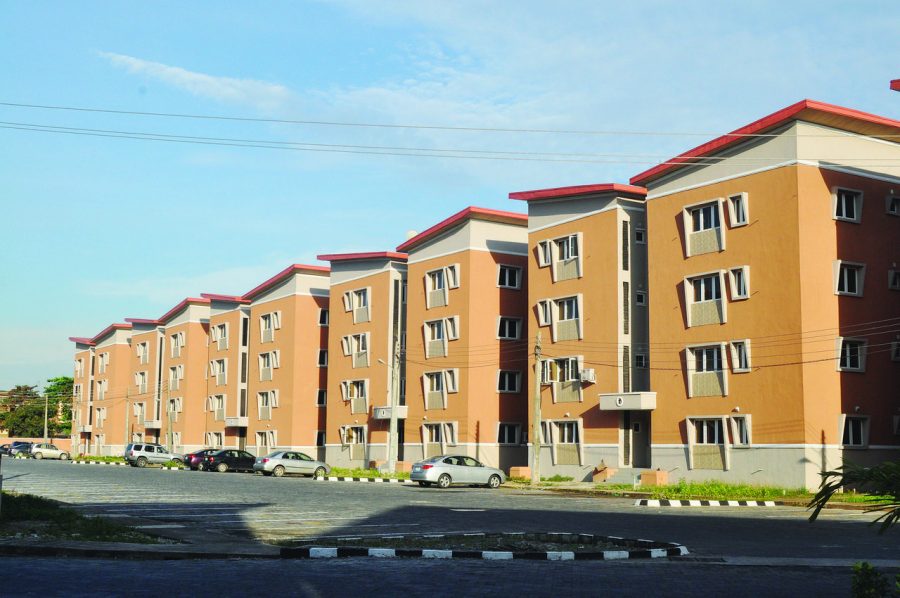What Is a Ground Lease?

A ground lease is an arrangement that allows an occupant to develop a piece of residential or commercial property during the period of the lease. After the lease period, the land and all improvements the occupant makes go back to the residential or commercial property owner. Ground leases might also be described as land leases considering that the proprietor is leasing out only the land.

Ground leases ought to include the following essential aspects:
- Default conditions
- Fees
- Financing conditions
- Rights of the proprietor
- Rights of the renter
- Regards to the lease
- Title insurance coverage
- Use arrangements
How a Ground Lease Works
Ground leases include leasing land for a long-lasting period to a renter who then constructs a structure on that residential or commercial property. A normal ground lease covers a duration from 50 to 99 years.
- Who owns the structure
- Who owns the land
- Improvements to the residential or commercial property
A ground lease stipulates that the residential or commercial property owner will own any enhancements unless the parties create an exception. This kind of agreement also stipulates that the renter will pay pertinent taxes during the period of the lease. Landlords may have the ability to offer the residential or commercial property on the land at a greater rate once the regard to the lease ends since they can assume all enhancements at that point.
Image by means of Unsplash by seanpollock
A property owner may choose to utilize a ground lease in order to:
- Avoid capital gains
- Generate earnings and earnings
- Retain residential or commercial property ownership for preparing factors
Ground leases are mainly used in business agreements. However, these types of leases are extremely various from other leases that you might discover for workplace structures and shopping complexes. Other industrial leases do not typically designate the lessee to take responsibility for the system, charging tenants rent so they can operate their organization rather.
When using a ground lease, however, a renter will usually presume obligation for any kind of expenses. Expenses that would be the duty of the renter on a ground lease consist of:
- Construction
- Financing expenses
- Improvements
- Insurance
- Renovations
- Repairs
- Taxes
Types of Ground Leases: Subordinated vs. Unsubordinated

You'll discover two primary type of ground leases: subordinated and unsubordinated. The distinction in between these 2 types handles what takes place if a tenant has financial troubles throughout the regard to the lease. Sometimes, tenants will take on financial obligation to fund jobs on the land they lease.
Subordinated Ground Lease
A property manager will consent to be a lower concern in regards to any other funding obtained on the residential or commercial property when signing a subordinated ground lease. If the tenant indications a subordinated ground lease on a plot of land, borrows cash to construct on that land, then defaults on the loan, the lender can go after the residential or commercial property (consisting of the land itself) as security.
In other words, the landlord in a subordinated ground lease enables the residential or commercial property deed to act as security ought to the renter default on a loan utilized to make enhancements. The proprietor can negotiate greater lease payments since they are taking on extra danger with subordinated leases. A proprietor may also pick to produce a subordinated ground lease since constructing the structure on their land can increase the residential or commercial property's value.

Unsubordinated Ground Lease
A landlord who signs an unsubordinated ground lease maintains top concern if there are claims on the residential or commercial property. This means that renter's lenders can not foreclose on the land if the tenant defaults on the loan. If the tenant defaults, the lending institution might pursue the tenant's organization properties. However, the loan providers can not get full control of the residential or commercial property as they might do with a subordinated ground lease.
Because the loan provider can not take ownership of the land in an unsubordinated ground lease need to a renter not pay their loan, prospective loan providers may hesitate to extend a mortgage so a tenant can make enhancements. As a result, property managers usually need to charge lower rent to the tenant.
Advantages of a Ground Lease

Ground leases can offer benefits to both property managers and occupants.
Landlords can anticipate particular advantages when signing a ground lease, consisting of:
- Steady earnings: While still maintaining ownership of their residential or commercial property, a landlord can access a stable income stream. Ground leases usually also have an escalation clause. This stipulation assurances lease boosts along with expulsion rights, which uses protection if a renter should default on rent or other types of costs.
- Tax cost savings: If a property owner offers residential or commercial property outright to a renter, they realize a gain on that sale. On the other hand, when they carry out a ground lease, they don't require to report any gains. However, there still might be tax implications in regard to the lease they get.
- Retain control: Some ground leases might include provisions that permit a property owner to keep a specific degree of control over their residential or commercial property. This can consist of how the residential or commercial property is established and how it is used. In these cases, the landlord will be able to deny or authorize changes to their land.
Tenants delight in a couple of benefits when signing a ground lease also:
- Building in a prime place: Tenants acquire the ability to build residential or commercial property in a prime place they might not otherwise have the ability to purchase. That's why you'll often discover big chain stores utilizing ground leases in business growth plans.
- No needed deposit: As the occupant does not need to have a deposit to secure land (they would if they were acquiring the residential or commercial property), less equity is involved. This, in turn, releases cash for other usages. It likewise improves the yield on utilizing that land.
- Reduction to tax problem: As rents that are paid on a ground lease can be deductible for earnings taxes (both federal and state), the general tax problem of the occupant is minimized.
Disadvantages of a Ground Lease
Certain disadvantages likewise exist for both property owners and tenants when choosing to use a ground lease.
Landlords
Landlords looking to carry out a ground lease should be wary of possible downsides:
- Loss of control: If a property owner does not consist of the proper stipulations and arrangements in their lease, they can end up losing control of the residential or commercial property.
- Higher tax ramifications: This varies based on the area of the residential or commercial property, however a ground lease can come with greater tax ramifications for the proprietor. Though landlords do not understand a gain from offering the residential or commercial property, the lease they charge is thought about earnings. That means rent will be taxed at the common rate, and this can increase the proprietor's tax burden.
Tenants
Tenants likewise ought to know downsides to a ground lease, including:

- Reduced versatility: Tenants may experience obstacles in utilizing or establishing the residential or commercial property if the property owner needs approval before they make any modifications. A tenant might for that reason experience more restrictions than they would if they had purchased the residential or commercial property.
- Higher costs: Costs that come along with the ground lease process might end up higher than the expenses of simply buying a residential or commercial property outright. A renter needs to be gotten ready for various costs building up, which can get pricey, particularly when waiting on approval for particular projects. Costs can include enhancements, allows, and taxes.
It's very crucial that both the proprietor and renter evaluate the lease with expert assistance before they sign it. Dealing with an expert contract attorney when creating a ground lease can make sure both parties are secured.









